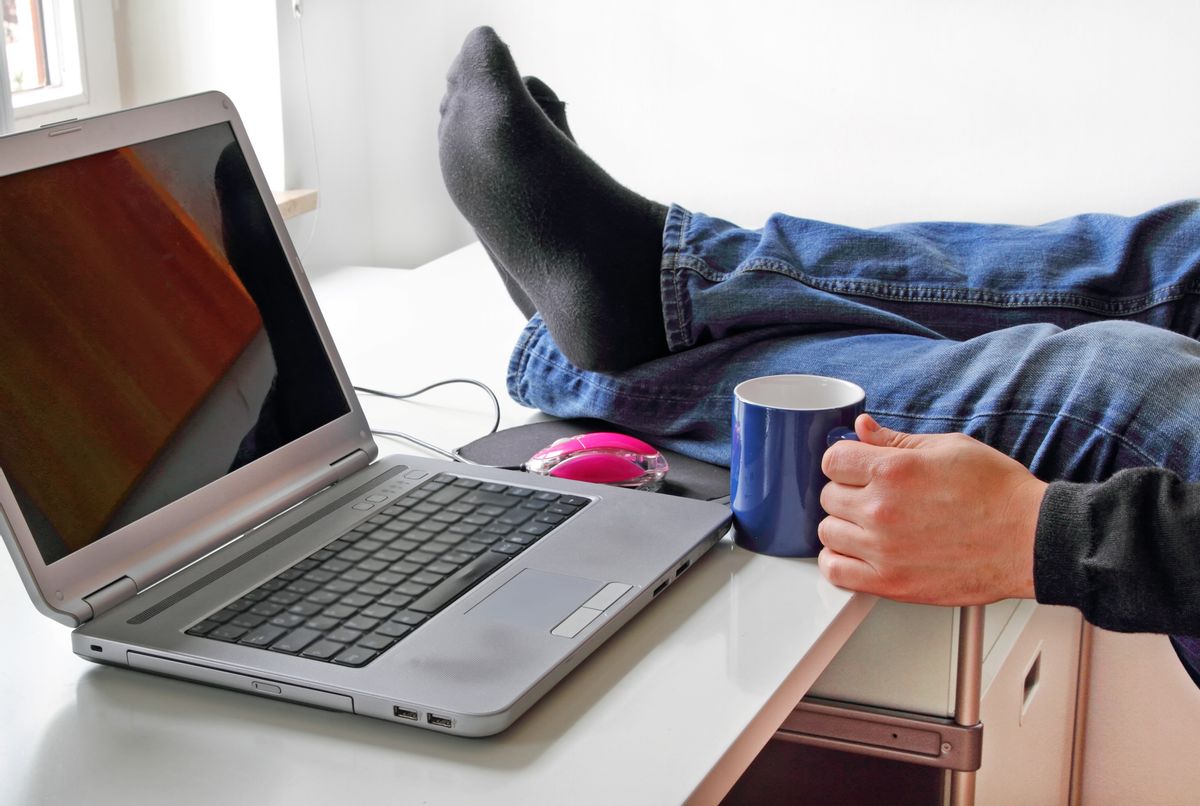There’s an old episode of “The Simpsons” in which Homer lies in a hospital bed while waiting for heart surgery, raising and lowering the bed while saying, “Bed goes up, bed goes down.” That’s the first thing that came to mind when I checked out the Stir Kinetic desk, a “smart” height-adjustable desk with Wi-Fi, Bluetooth, and a built-in touchscreen that aims to get you moving around while you work, instead of just sitting at your desk all day.
During a demonstration at an apartment in San Francisco’s Soma neighborhood, Stir founder and CEO JP Labrosse told me the idea for the desk stemmed from his time as a member of the original iPod team at Apple, where he first encountered colleagues with adjustable desks and got hooked on using one himself. Labrosse says the ability to change his working position throughout the day makes him feel more energized and focused.
This comes at a price: the Kinetic desk will retail for $3,890 when it begins selling later this year. Yet Labrosse clearly thinks it will appeal to enough consumers and companies to make its development worthwhile.
He showed me the desk’s main features which, unlike my work desk, go beyond simply serving as a stable, level surface with coffee-mug stains. The desk was white and sleek-looking, with a single button on the front left–this enables “active mode,” in which the desk will occasionally rise and fall about an inch as a signal that it wants to move up so you’ll have to stand to work, or down so you’ll have to sit. Users can double-tap a small touchscreen embedded in the desktop to allow it to make this height change. Based on your responses, Labrosse said the desk will learn the best times to prompt you about making a height change.
Labrosse got the desk going in “active mode,” and suddenly it heaved a mechanical sigh, letting me know it wanted to rise up from its sitting-position height.
“A lot of people have this experience where they sort of get in the zone working on things and hours and hours will go by. I have this experience, too–‘I need to eat’–I forget about the basics,” he said. “And the desk is really taking responsibility for that based on preferences you set to give you those reminders.”
While this has never been a problem for me, perhaps that is true for some cube-dwellers. And the desk’s intermittent rising and falling, while a little weird in its mimicry of human breathing patterns, was oddly soothing. I could also see the benefits of changing from sitting to standing throughout the day.
The touchscreen allows you to set preferences for how high or low you want the desk to go, and you can see data about how much time you spend sitting or standing. It also has a sensor that can sense your presence, helping enable features like figuring out how many calories you’ve burned when standing compared with sitting. Wi-Fi and Bluetooth enable features like software updates and, eventually, the ability to connect to various “quantified self” apps and devices, Labrosse said–a potentially neat way to get a better picture of how active you are and how many calories you’re burning each day, considering how much time you may spend at your desk.
If you’re interested in the desk but can’t quite swallow the price tag, here’s a tip: Labrosse said it will enable multiple users, so you could always buy one and share it with an officemate (or five).
View "A Robo-Desk For Weary Office Workers" and find more technology news from MIT Technology Review.
© 2013 MIT Technology Review
![]()



Shares